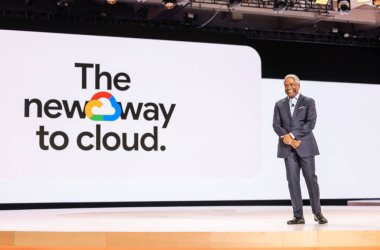 In an attempt to get away from paying for high-priced email administrators, the Pittsburgh city government is looking to save money and move to the cutting edge with a migration to Google Apps.
In an attempt to get away from paying for high-priced email administrators, the Pittsburgh city government is looking to save money and move to the cutting edge with a migration to Google Apps.
Pittsburgh CIO Howard Stern said the city is set to sign a contract with Google in mid-August and then begin the process of migrating to Gmail and Google Calendar in November. All of the city’s 2,000 to 3,000 email accounts should be moved over to the new system by the end of the year, according to Stern.
“Going to the cloud seems like a great option for us,” Stern said. “I’m optimistic…. I’m a little anxious about any change that will impact 2,000 to 3,000 users, but I think the disruption will be minimal and the impact will be huge,” he said.
“The idea of migrating to the cloud seems to be gaining momentum not just among businesses but also among municipal governments . And the industry should expect more cloud migrations in the near future,” said Dan Olds, an analyst at Gabriel Consulting Group.
The Los Angeles city government replaced its Novell GroupWise collaboration system with hosted Google Apps software tools in 2010, and the San Francisco city and county governments moved multiple email systems to Microsoft ‘s cloud-based email.
“Bigger users are moving past just dipping their toes into the cloud computing waters,” said Olds. “Expect to hear about more of these deals as clouds start to move mainstream. It will be interesting to see how the actual experience matches the promise in terms of service quality, security and cost.”
Working with a team of people from both inside and outside of city hall, Stern spent 13 months researching alternative email systems; he then got the city council’s approval to move the project forward.
Pittsburgh has been using Microsoft Exchange 2003 for email, according to Stern, the system served city administrators, police and emergency responders. He pointed out that although the city didn’t have a problem with Exchange, but it did have trouble finding IT administrators to manage it.
“The problems had less to do with the Microsoft product and more to do with our internal resources,” Stern said. “A couple years ago, we were looking for an Exchange administrator and we just couldn’t find someone with the right skill set at our pay rate. We have a hard time paying our employees competitive salaries. Good administrators for Microsoft Exchange are fairly pricey,” he added.
To get around that problem, Stern said Pittsburgh officials decided to move to the cloud so a service provider could manage the email system. That way, the city wouldn’t need as many dedicated technicians for its email service.
But after embracing the cloud, Pittsburgh had to make one more decision: Should it stick with Microsoft and its Office 365 suite of cloud-based tools? Or should it switch to Google and its cloud-based Google Apps productivity suite?
The city decided to go with Google.
“Basically, there’s a Microsoft or a Google cloud. They were both very, very good products. It was a tough decision,” said Stern, who noted that the selection committee included city IT staffers as well as a budget official, the county CIO, and a tech representative from a local university.
“The reason that we went with Google at the end of the day was a matter of pricing, a matter of security, capacity and a matter of innovation that is promised for the future,” Stern said. “Everyone, internal and external folks, all had the same feeling at the end of the day about going with Google,”he said.
Stern noted that he was impressed with Google’s cloud security, as well as with its experience in dealing with the requirements of the Federal Information Security Management Act (FISMA), which sets standards for information security.
Google and Microsoft have been increasingly competitive, with both companies vying to move their cloud-based applications into the enterprise . Olds said this competition can only help organisations that are looking to get good deals.
“Now that Microsoft has a cloud offering, we’re going to be seeing them locking horns directly with Google much more often,” Olds said. “This is a good thing for users, since it forces both companies — along with the smaller players — to take their game to a higher level in terms of service quality,”he added.
One of the pieces of good news for Pittsburgh is the amount of money it will save. By migrating its email to Google’s cloud, Stern said the city will see its licensing costs drop from $200,000 a year to $160,000.
The city will also save money on personnel costs. Stern pointed out that the two administrators who manage the Exchange system will see their email duties cut by 60% , freeing them up to spend more time on other IT tasks.
“Overall savings, between staffing and real dollar figures, we’ll save well over $100,000 a year,” said Pittsburgh’s CIO. He was quick to add that the decision was not all about money. It was also about security, added versatility and efficiency. “For instance, the city limits the amount of storage space users have for their email to between 50MB and 100MB for the average user. In the cloud, each user will have 25GB of storage capacity,” Stern added.
Stern said he got advice from officials in other state and local governments who have recently switched to Google Apps. He contacted administrators for the cities of Orlando and Des Moines and the state of Wyoming to learn about their migrations and day-to-day experiences.
“They felt comfortable and safe, and at the end of the day, we feel comfortable and safe,” Stern said. “This information must be protected. We had to feel really comfortable about this. I hold all this data, all these emails. And by giving it to someone else, I lose control. I feel comfortable with the way it’s being secured,”he concluded.





